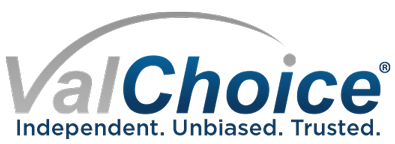Healthcare changes are creating confusion. Are the changes helping? This roundup post covers three topics:
- What Federal, State and Private Health Insurance Exchanges will NOT accomplish.
- What are all The New Acronyms, and What do they Mean to Me?
- Is Universal Healthcare in our Future?
Healthcare Changes – What Hasn’t Been Addressed?
- Lower Healthcare Costs—healthcare costs have been rising for those with insurance already. The general consensus from Warren Buffett to healthcare policy experts is that Health Reform, Obamacare, and The Affordable Care Act will not lower healthcare costs.
- Fix the Moral Hazard that exists when people consume healthcare—the Moral Hazard is that people do not measure value (price and quality) well when someone else (i.e. insurance) is paying the bills.
- Remove the Externality that exists in healthcare—an Externality is when the decisions of one person affect another person without that effect being taken into account. For example, playing loud rock music affecting a neighbor, or in Healthcare the doctor and patient being wasteful and as a result causing everyone’s insurance premiums to rise.
- Decrease the Confusion in Healthcare—if anything, an online Health Insurance Exchange may increase confusion. The fine print of health insurance policies, the foreign medical terminology used by doctors, and the cryptic codes used in medical billing require healthcare consumers to have expert, personal guidance—not a website of choices
- Decrease Out-of-Pocket Expenses for Healthcare Consumers—According to an article in Forbes, the average premium for a silver plan will be $328 per month with deductibles ranging from $1,500 to $5,000. The article goes on to say that the deductibles will be more than twice the average deductible in employer-sponsored coverage.
Healthcare Changes – More, New Acronyms?
Health maintenance organizations (HMOs) cover only care provided by doctors and hospitals inside the HMO’s network. HMOs often require members to get a referral from their primary-care physician in order to see a specialist.
Preferred provider organizations (PPOs) cover care provided both inside and outside the plan’s provider network. Members typically pay a higher percentage of the cost for out-of-network care.
Exclusive provider organizations (EPOs) are a lot like HMOs: They generally don’t cover care outside the plan’s provider network. Members, however, may not need a referral to see a specialist.
Point of service (POS) plans vary, but they’re often a sort of hybrid HMO/PPO. Members may need a referral to see a specialist, but they may also have coverage for out-of-network care, though with higher cost-sharing.
Click here to view original web page at What’s the best health plan for you? HMO, PPO, EPO or POS?
Is Universal Healthcare in Our Future?
Subsidized health insurance is unlikely to lead to Universal Health Coverage (UHC); insurance coverage doesn’t always improve financial protection and when it does, doesn’t necessarily eliminate financial protection concerns; and tackling provider incentives may be just as – if not more – important in the UHC agenda as demand-side initiatives. These are the three big and somewhat counterintuitive conclusions of the Health Equity and Financial Protection in Asia (HEFPA) research project that Adam Wagstaff jointly coordinated with Eddy van Doorslaer and Owen O’Donnell.
To have the latest on insurance issues that impact you delivered to you via email, click this link.

No comments yet.